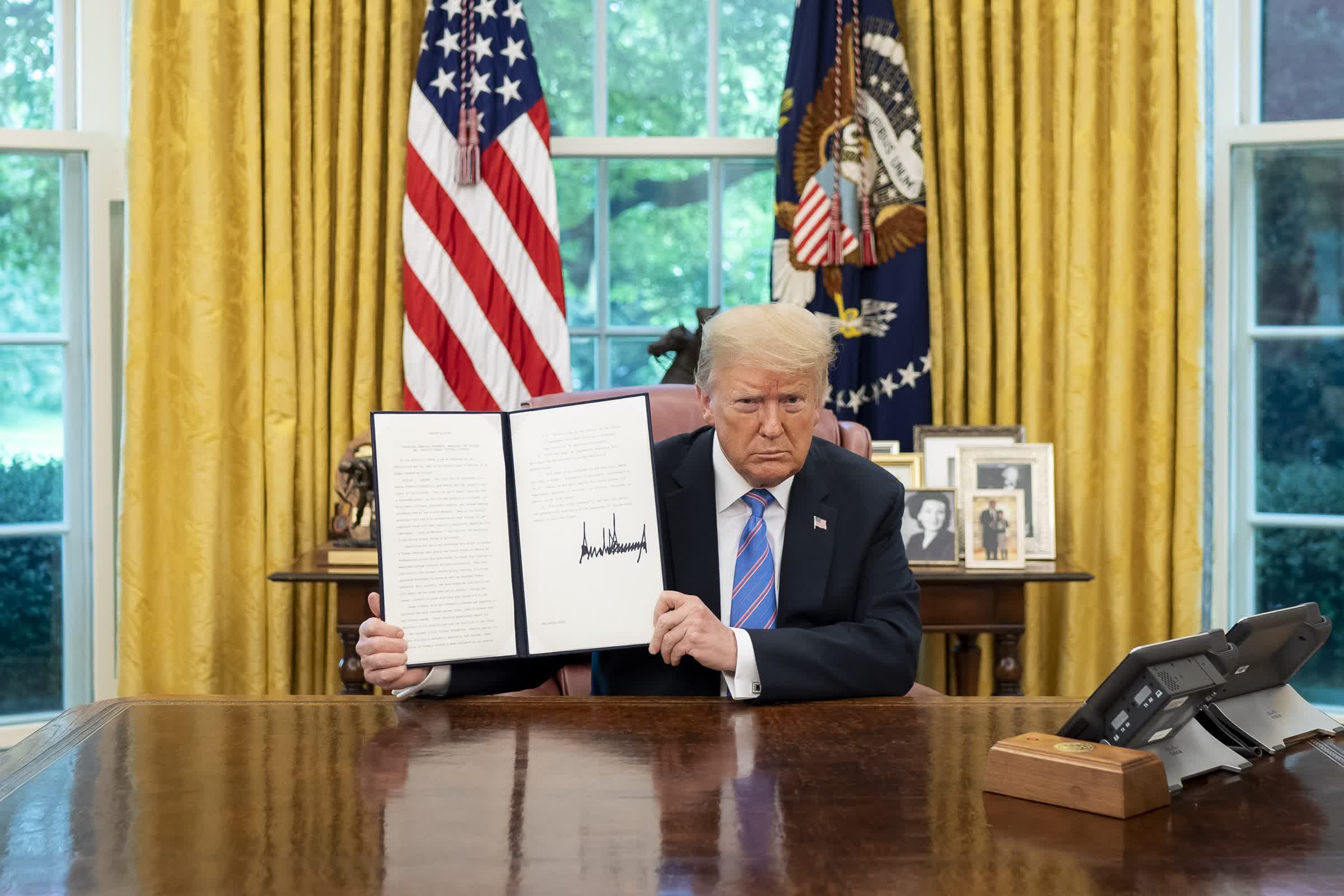What just happened? President Donald Trump has taken a firm stance on one of the most contentious questions in artificial intelligence: whether companies developing AI should be required to pay for the copyrighted content used to train their systems. Speaking at an AI Summit in Washington, Trump dismissed the idea as unworkable. He argued that requiring AI firms to compensate for every book, article, or piece of media used in training their models would stifle innovation and risk leaving the United States behind global competitors like China.
"You can't be expected to have a successful AI program when every single article, book, or whatever you've studied you're expected to pay for," Trump said, likening the process to a person reading for knowledge – a practice not subject to royalties or contract negotiations.
Trump's comments come at a time when copyright holders, authors, and content creators are increasingly alarmed by how AI companies use their materials without permission, sparking lawsuits and a heated debate over intellectual property rights. Trump, however, dismissed the notion that strict licensing requirements are feasible in the global AI race, noting that China does not enforce similarly stringent rules. This, he warned, could put American technological leadership at risk.
The summit served not only as a platform for policy pronouncements but also as the launch event for a sweeping new initiative from the White House: America's AI Action Plan.
Released on July 23, the plan outlines a markedly different approach to artificial intelligence from that of former President Joe Biden. While Biden's administration emphasized safeguards, risk management, and consumer protections, Trump's blueprint focuses on eliminating regulatory barriers and delivering an unequivocal push for national competitiveness.
The 28-page action plan includes roughly 90 recommendations aimed at accelerating AI innovation, expanding domestic infrastructure, and securing US leadership in growing international markets. Central to the strategy is a rapid increase in American AI technology exports, particularly to allied nations. The Trump administration plans to encourage federal agencies to partner with industry consortia on "full-stack" export packages encompassing software, hardware, data solutions, and technical standards.
To support AI at scale, the plan calls for fast-tracking new data center construction by easing longstanding environmental regulations, opening up federal land, and streamlining permit approvals nationwide. The administration also seeks to exempt data centers from certain provisions of major environmental laws to ensure infrastructure keeps pace with demand. These measures aim to meet the soaring electricity needs of the sector, as AI and cloud computing continue to drive US power consumption to record levels.

The plan also outlines a federal strategy to preempt state-level regulations deemed too restrictive for AI businesses. Trump has repeatedly emphasized that a single national standard must govern the future of American AI, rather than a patchwork of rules set by individual states. Federal funding for AI-related projects may be withheld from states pursuing aggressive regulatory approaches.
At the same time, the plan encourages the Federal Communications Commission and the Federal Trade Commission to review – and potentially challenge – state and legal actions considered unduly burdensome to innovation.
Notably, the action plan mandates that federal contracts for large language models and other high-impact AI systems be awarded only to companies whose technologies are deemed free from "top-down ideological bias." The White House seeks to remove requirements related to diversity, equity, and inclusion, misinformation, and climate change from official AI risk management frameworks, positioning the federal government as a defender of "objective truth" and "free speech" in the age of AI.
Despite Trump's vocal remarks on copyright, the action plan stops short of directly addressing the issue. The absence of clear guidance on intellectual property leaves key legal questions unresolved, with administration officials suggesting that such disputes should be settled in the courts.
The plan does, however, address deepfakes – false or manipulated audio, video, and images – by calling for new federal guidance and a "voluntary forensic framework" to help courts assess the authenticity of digital evidence.
The Trump administration's initiative also rescinds several Biden-era rules viewed as impediments to AI development, including restrictions on the export of advanced chips and executive orders targeting misinformation. The policy shift is intended to allow US firms such as Nvidia, AMD, Google, Microsoft, and Meta to more freely deploy their technologies worldwide, reinforcing American influence in what Trump describes as a defining competition of the 21st century.
